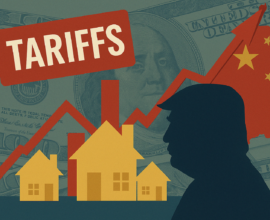Full 30 Year Title Search vs O & E Report, What’s the Difference?
30-Year Search vs. Ownership and Encumbrance Report: What’s the Difference?
A title search is a little bit like reviewing the history of a parcel of land. Purchasing a parcel of land without engaging in any kind of title search is like going into battle knowing nothing about your enemy — it is bound to result in failure.
For this reason, successful property investors understand the value of running title searches on their desired acquisitions prior to bidding for them. Furthermore, not all title searches are alike, nor do they serve the same purpose. But just how is an investor supposed to know which title search is best for their investment strategy? In this article, I will discuss title searches in respect to Florida homeowners association foreclosures, mortgage foreclosures, and tax certificate and tax deed sales.
How Traditional Property Sales Work in Florida
In a traditional sale and purchase of Florida property, after entering into the contract, the parties take their fully executed contract to a title company. The purpose of using a title company to close the sale is:
- To have a third-party escrow agent manage the funds so that neither buyer or seller is at an advantage
- To have a proper accounting of costs and credits
- To provide marketable title to the buyer that is insured up to the purchase price of the property (sometimes higher if the acquisition is for the purpose of building)
When a title company receives a contract, they conduct what is commonly referred to as a 30-year search to determine the root of title, that which can be considered good and valid title under the Florida Marketable Record Title Act. Does this mean that the searchers look back 30 years and produce a title report with their findings? No. In fact, it’s a bit of a misnomer.
A proper 30-year search goes back at least 30 years to find the root of title. In some cases, this means the searchers go back 60, 80, or even over 100 years to get to the root of title. From there, the searchers identify title interests, valid liens, and other encumbrances to the title that will need to be paid off via the closing, quieted out in litigation, probated to effectively transfer title, access litigation, etc.
These items are produced in a report called a title commitment, generally on schedule B. This commitment is then shown to the buyer and seller, informing them of the steps that need to be taken so a warranty deed can be conveyed to the buyer(s) at closing and a title insurance policy can be issued covering the transaction.
These steps are also required in a traditional refinance of property, where a lender submits a request for title commitment to the title company of the lender’s or borrower’s choice. The company produces a report informing them of the steps that need to be taken so the mortgage can be insured for the face amount of the loan at the closing.
Foreclosure and Tax Deed Sales Are a Bit Different
Foreclosures and tax lien auctions produce different kinds of title, either a certificate of title or a tax deed. Both of these are unique titles in that the successful bidder inherits the position in the chain of title of the foreclosing party. As a result, investors who are seeking to acquire property via foreclosure or tax auctions do not undertake a 30-year search prior to acquiring their title. Instead, they rely on narrower title searches, such as an Ownership and Encumbrance Report (also known as a Quick Search or O&E report). O&E reports generally provide the following information to investors who want to bid on property:
- Property appraiser information
- Property tax collector’s office information, including the last bill paid and whether there is a delinquency
- The last deed of record (titleholder of record)
- A copy of the docket if it is a judicial foreclosure (such as an association or mortgage foreclosure)
- A copy of the mortgage or association lien being foreclosed
- A copy of all active junior liens of record on the property
O&E Title Searches Are Cost Effective!
Investors use O&E reports because they typically cost less than half the cost of a traditional 30+ year title search. An O&E report examines the title and its encumbrances back to the last traditional closing on the property.
We can usually safely assume that the last time this house was sold and had a traditional closing with a warranty deed, the attorneys and closing company made sure all encumbrances were taken care of before they issued title insurance at closing. This makes the scope of the search much smaller, and companies like PropertyOnion.com can do these title searches for as little as $45 for investors.
The typical successful county foreclosure and tax deed investor analyzes 100+ properties per month that meet some of their investing criteria. They can eliminate 75% of the properties on their own, and them complete 10 to 20 O&E reports on the remaining properties. Spending $200 on each one for a full 30-year title search is not cost effective, but $45 for each property can easily be paid for with a small chunk of profits from just one deal per month.
O&E Reports Are Not Legal Opinions
Unlike the title commitment, which comes as a result of the more expensive 30-year search, O&E reports do not provide advice or direction to the investor on what actions need to be taken to render title acquired via a specific foreclosure marketable.
Although companies like PropertyOnion.com can help you understand your report and the red flags they find on your properties, this cannot include legal opinions or investment advice. For that, investors should develop a relationship with a Florida real estate attorney who is very familiar with reviewing title and will be able to spot issues, such as the examples below.
HOA Foreclosure, Mortgage Foreclosure, and Tax Deed Example Scenarios
Scenario A: Homeowners Association Foreclosure
Clever Investor receives an O&E report a week prior to the association’s foreclosure sale of homestead property. The property has two mortgages secured thereon: a purchase money mortgage and a home equity line of credit. The report shows the occupant is the current title holder and that taxes are paid through the most recent year.
The Clever Investor believes he will have to negotiate payoffs for two mortgages based on the report but knows all prior association dues should be satisfied from his purchase at the auction (if he is the successful bidder). The report also shows the association named the home equity lender as a defendant in the suit, and the Clever Investor is not sure what that means. The Clever Investor takes his report to a local real estate attorney.
The attorney examines the association’s restrictions of record, which state that only purchase money mortgage liens are considered superior to the association’s lien. As a result, the Clever Investor discovers that he will only have to negotiate a payoff for one mortgage, and the property may be substantially more profitable than previously believed.
Scenario B: Mortgage Foreclosure
Clever Investor receives an O&E report a week prior to the mortgage foreclosure sale of non- homestead property. The property has five liens attaching: the mortgage that is foreclosing, an association lien, two credit card judgments, and a junior mortgage. Clever Investor reviews the case docket. All but one of the credit card judgment lienholders were named as defendants in the suit. The Clever Investor takes his report to a local real estate attorney.
The attorney examines the report and determines that, to properly extinguish the credit card judgment from attaching, the Clever Investor will have to re-foreclose out that junior lien or otherwise terminate the redemptive rights of the omitted lienholder. As a result, the Clever Investor discovers that, if he becomes the successful bidder, he may have 3-6 more months of litigation and attorneys’ fees after receiving a certificate of title to make his title marketable. He adjusts his maximum bid downward to reflect these challenges.
Scenario C: Tax Deed
Clever Investor receives an O&E report a week prior to the administrative tax foreclosure sale of non-homestead property. The report advises that there are two prior mortgages and a deceased prior owner. The report shows that one of the mortgages is in active foreclosure. The Clever Investor takes his report to a local real estate attorney.
The attorney examines the report and determines that, upon the issuance of the tax deed, the mortgage foreclosure activity will have to cease. If he wins, the Clever Investor should promptly inform the foreclosure attorney to stop the process, which is now null and void.
The attorney also advises the Clever Investor that the title will need to quiet out the interests of the prior estate, and that likely an ad litem will need to be appointed to determine the heirs in the litigation. As a result, the Clever Investor becomes more confident in his maximum bid and has a greater sense of timeline for getting the tax deed to become marketable.
Understanding Title Reports Is the Key to Foreclosure Auction Success
The foreclosure world is ripe with opportunities to acquire property substantially below market value. By becoming familiar with title issues and title reports and preparing ahead for the cost and time involved in curing title deficiencies to make certificates of title and tax deeds marketable, real estate investors can find gems where others only see rocks.
The O&E Title Search service PropertyOnion.com provides is an essential tool in the toolbox of foreclosure auction investors. Understanding the title on auction properties is the most important part of this business, so count on us to help you at this critical stage!








